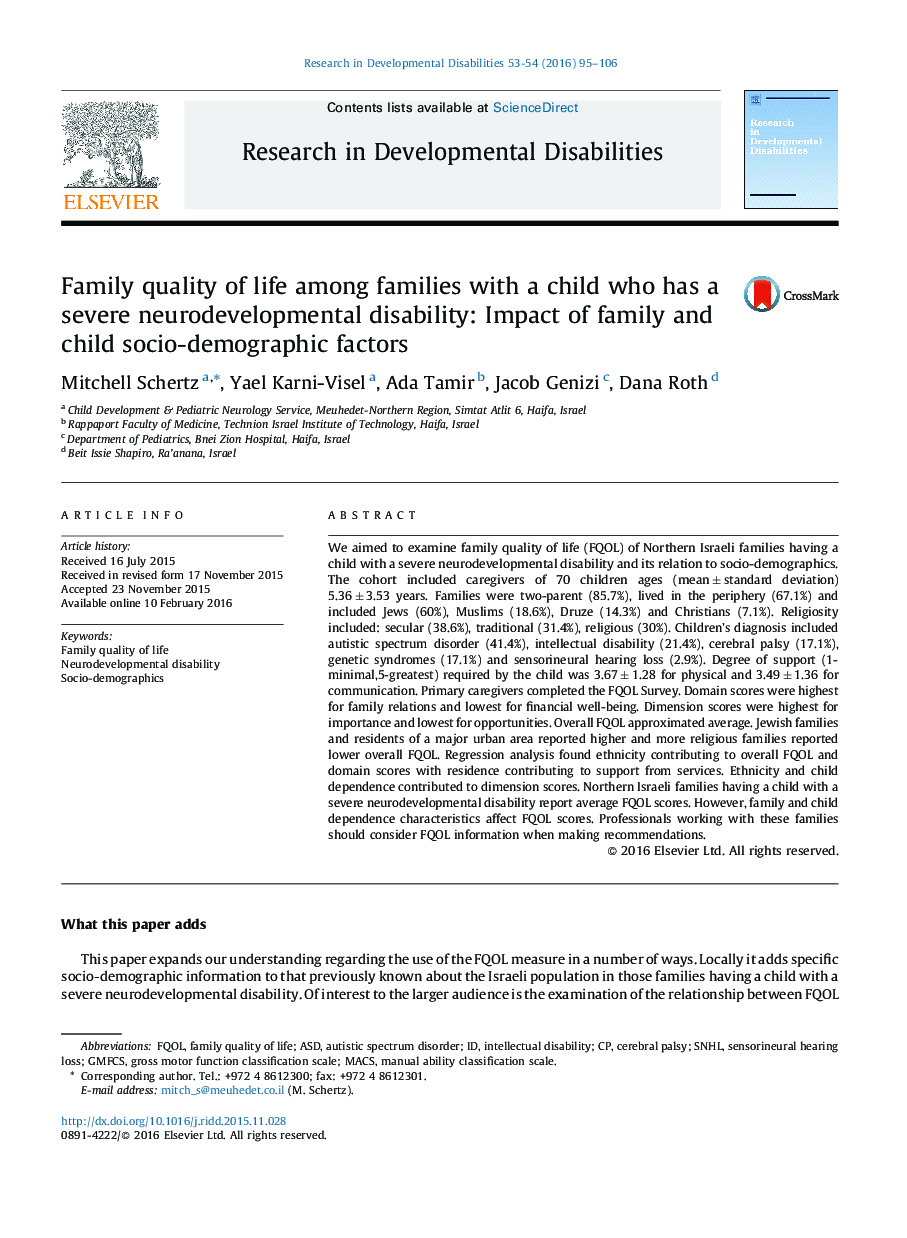| کد مقاله | کد نشریه | سال انتشار | مقاله انگلیسی | نسخه تمام متن |
|---|---|---|---|---|
| 370972 | 621892 | 2016 | 12 صفحه PDF | دانلود رایگان |
• Families having a child with a neurodevelopmental disability from Northern Israel represent a diverse population.
• FQOL scores in this population were overall average.
• Socio-demographic factors impacted on FQOL.
• FQOL should be considered when providing intervention recommendations.
We aimed to examine family quality of life (FQOL) of Northern Israeli families having a child with a severe neurodevelopmental disability and its relation to socio-demographics. The cohort included caregivers of 70 children ages (mean ± standard deviation) 5.36 ± 3.53 years. Families were two-parent (85.7%), lived in the periphery (67.1%) and included Jews (60%), Muslims (18.6%), Druze (14.3%) and Christians (7.1%). Religiosity included: secular (38.6%), traditional (31.4%), religious (30%). Children's diagnosis included autistic spectrum disorder (41.4%), intellectual disability (21.4%), cerebral palsy (17.1%), genetic syndromes (17.1%) and sensorineural hearing loss (2.9%). Degree of support (1-minimal,5-greatest) required by the child was 3.67 ± 1.28 for physical and 3.49 ± 1.36 for communication. Primary caregivers completed the FQOL Survey. Domain scores were highest for family relations and lowest for financial well-being. Dimension scores were highest for importance and lowest for opportunities. Overall FQOL approximated average. Jewish families and residents of a major urban area reported higher and more religious families reported lower overall FQOL. Regression analysis found ethnicity contributing to overall FQOL and domain scores with residence contributing to support from services. Ethnicity and child dependence contributed to dimension scores. Northern Israeli families having a child with a severe neurodevelopmental disability report average FQOL scores. However, family and child dependence characteristics affect FQOL scores. Professionals working with these families should consider FQOL information when making recommendations.
Journal: Research in Developmental Disabilities - Volumes 53–54, June–July 2016, Pages 95–106
